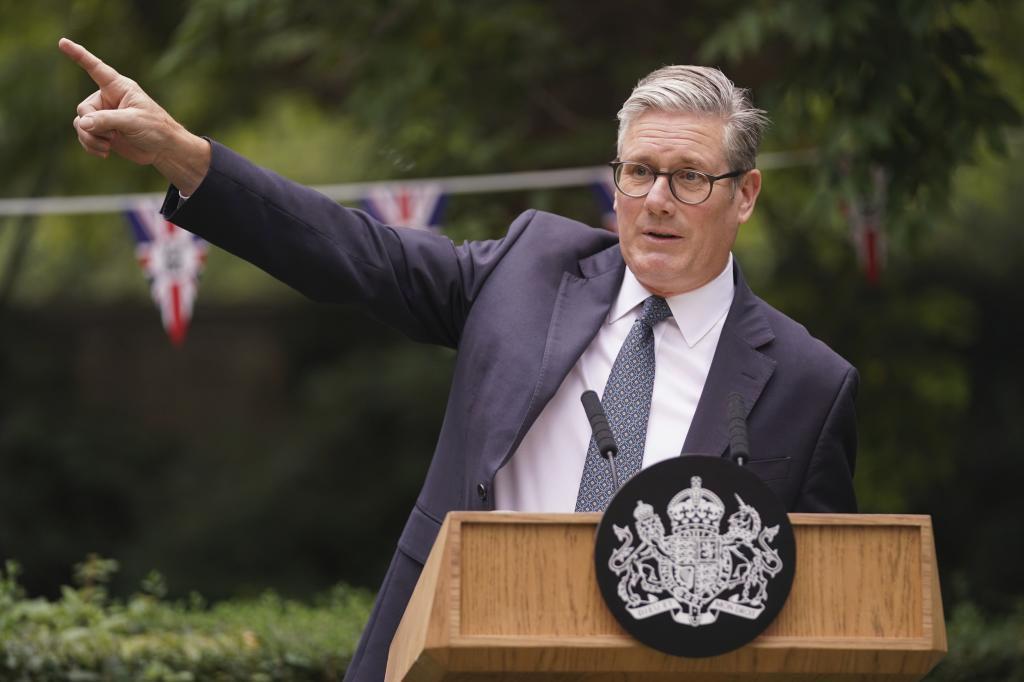The British Government is preparing to significantly tighten the granting of student visas after detecting that as many as 16,000 beneficiaries of that temporary immigration system used them only in the 2023-2024 academic year to enter the United Kingdom legally and then apply for asylum and stay.
The new rules, which according to the conservative newspaper The Times will come into effect in September, will impose stricter conditions on universities. If less than 95% of foreign students with visas start the academic year, or if less than 90% complete it, the institution will be penalized. There will also be penalties for educational institutions if more than 5% of the visas they have sponsored for an academic year are rejected by immigration authorities. Universities with the worst results in this area will be listed publicly, have their quota of international students limited, and could even lose their license to sponsor visas.
The goal is to close the backdoor that this visa represents for staying in the country. In 2023 alone, 16,000 people who had entered legally as students applied for asylum, nearly half of those who crossed the English Channel in small boats. It is, therefore, one of the largest channels for irregular immigration in the United Kingdom, despite largely going unnoticed due to its nature.
For universities, the new measures pose an economic problem. In the 2023-2024 academic year, foreign students contributed £12.1 billion (¤14 billion), approximately a quarter of total university income. Around 25% of university students in the United Kingdom are foreigners. In institutions like Hertfordshire (55%), Coventry (42%), or Bedfordshire (38%), the proportion is even higher.
One of the criticisms of the current British student visa system is that it has not attracted young people seeking academic excellence but rather immigrants eager to stay in the country. According to various studies, in the last decade, universities ranking lower in academic standings have seen a greater increase in foreign students.
This is reflected in the proliferation of academic centers in London, a much more attractive location for foreigners than, for example, a small town in the countryside. For the conservative opposition, which has described the measures of the government led by Keir Starmer as "insufficient," these universities are true "visa factories." This criticism is shared by many. However, it is also true that the British regulatory environment favors this strategy, which is also very profitable: almost all foreign students, unlike British students, pay full tuition fees, making them much more profitable for universities. The same situation occurs in the United States, explaining the interest of universities in attracting students from abroad, a practice that Donald Trump is currently trying to dismantle, not due to visa issues but simply due to a rejection of foreigners.
Despite criticism from the Tories, the Starmer Government is considering further tightening its stance, including imposing a new 6% tax on each international tuition fee for universities.
Additionally, the postgraduate visa - which currently allows staying for two years after completing university studies - would be reduced from 24 to 18 months, unless the graduate secures a qualified job. This visa - ironically implemented by the conservative government of Boris Johnson - has been considered by many as a true "loophole" for undocumented immigrants.
Controls on applicants from countries with high asylum application rates or irregular stays, such as Pakistan, Nigeria, and Sri Lanka, will also be intensified. Citizens from these countries will undergo stricter checks, including thorough reviews of their financial assets and social networks to verify their real intention to study or stay. Another option could be imposing restrictions on nations whose citizens tend to abuse the system more. London is considering limiting the number of visas to these countries or even suspending visa-free entry to the UK in certain cases.
It is undeniable that a portion of student visas is simply a way to enter the UK. In the year following Johnson's reinstatement of postgraduate visas - which also covered not only the student but also a dependent - the number of visas multiplied. The growth was staggering. In some cases, such as India, the number of enrollments increased by 4.5 times; in sub-Saharan Africa, by six times; and in Pakistan, by nine times.
This reform, marking one of the most significant shifts in educational migration policy in years, is part of the immigration control measures of the Starmer Government, which have drawn harsh criticism from the left-wing sector of the Labour Party, accusing the Prime Minister of copying conservative or even far-right party Reform UK, led by Nigel Farage.
For major universities, this is a minor issue. However, for smaller ones, Westminster is putting them in a difficult situation: reduce their dependence on the money generated by foreign students or risk facing government sanctions.
